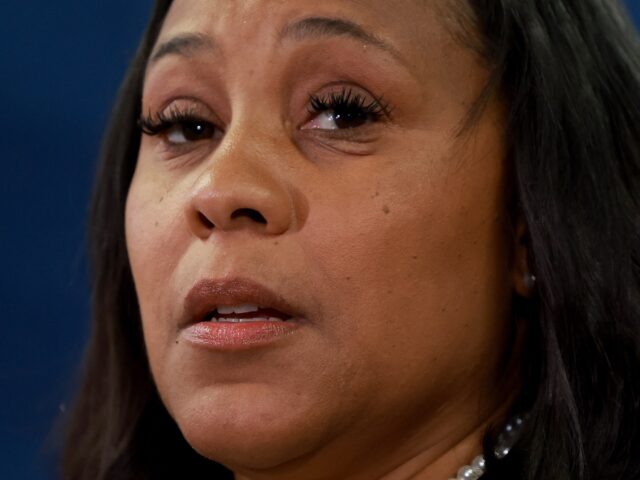The indictment against President Donald Trump and 18 lawyers, aides, and supporters has been widely criticized, but even many of the critics have missed the most important flaw: the fact that the entire grand jury investigation began with a bit of fake news.
The fake news was reporting that Trump had told Georgia officials, by telephone, to fabricate votes.
In early January 2020, for example, Trump was reported to have told Georgia Secretary of State Brad Raffensperger to “find” the votes he needed to win.
Actually, what Trump said was: “I just want to find 11,780 votes, which is one more than we have because we won the state” (emphasis added).
Trump was not giving an order. He was talking about his own feelings. And as Scott Adams noted this week, Trump was speaking in the context of believing he had already won the state. He believed the proof was out there; he didn’t need to make anythig up.
As George Washington University Law School professor Jonathan Turley has noted: “While others have portrayed the statement as a raw call for fabricating the votes, it seems more likely that Trump was swatting back claims that there was no value to a statewide recount by pointing out that he wouldn’t have to find a statistically high number of votes to change the outcome of the election. It is telling that many politicians and pundits refuse to even acknowledge that obvious alternate meaning.”
The term “find” is also used colloquially, and often, in the context of counting votes. Political analysts on television routinely say that a candidate needs to “find” votes in one area or another, having already been cast, as results are reported by local precincts.
A week later, there was a mistaken report in the Washington Post on Jan. 9, 2021, that Trump had urged a Georgia election investigator, later named as Frances Watson, to “find the fraud.” The original headline was: “‘Find the fraud’: Trump pressured a Georgia elections investigator in a separate call legal experts say could amount to obstruction.”
The Post later had to issue a correction: “Trump did not tell the investigator to ‘find the fraud’ or say she would be ‘a national hero’ if she did so. Instead, Trump urged the investigator to scrutinize ballots in Fulton County, Ga., asserting she would find ‘dishonesty’ there.” But the inaccurate version of the Post‘s original story was repeated throughout the mainstream media before the correction was made.
That does not mean Trump’s conduct was praiseworthy. But there was nothing in his conversations — properly reported, at least — to suggest that he had done anything illegal, especially given that he knew lawyers and skeptical officials were listening to him.
Nevertheless, these reports were partly what prompted Fulton County District Attorney Fani Willis to launch her investigation, starting with a “special grand jury” and leading to the current indictment.
CNN recently reported that the conversation with Brad Raffensperger were what “kicked off the local district attorney’s investigation.” That conversation, and others, were reported — and misquoted — in a highly partisan context, when Democrats were looking for any way to punish Trump and his supporters.
In Trump’s second impeachment trial, for example, which centered on the Capitol riot of January 6, 2021, the Democrats’ House impeachment managers presented the fake “find the fraud” quote as if it were real, effectively falsifying evidence in the Senate.
It was not the first time fake news had factored into an impeachment.
Trump’s first impeachment was prompted by misleading, second-hand, anonymous media reports about his telephone call with Ukrainian President Volodymyr Zelensky. The transcript, which Trump declassified and released, showed that there had been no “quid pro quo” for an investigation into (accurate, it turns out) suspicions of Joe Biden’s role in Ukraine. But Democrats stuck with the fake news, even making up a fake transcript.
The pattern in both cases was the same: incriminating media reports, based on leaks that likely came from anti-Trump sources, triggered an investigation that had too much political momentum to be stopped once the contrary, first-hand evidence emerged.
Another fake news story that helped launch an investigation was the claim that Trump asked Russia to hack into former Secretary of State Hillary Clinton’s emails. Trump joked about Russia finding Clinton’s emails during a press conference in July 2017. His critics claimed that his rather obvious attempt at humor was, in fact, an invitation to a geopolitical rival to commit espionage.
That prompted then-CIA director John Brennan to start a counter-intelligence investigation into the Trump campaign. That investigation fed the “Russia collusion” hoax, which became an attempt to undo the results of the 2016 election. No major figure — not Clinton, nor her lawyers, nor the officials responsible for pushing the lie — was indicted, though Special Counsel John H. Durham convicted an FBI lawyer of falsifying an email (and lost two other cases, likely, in part, because of jury nullification).
It is unclear whether the “special grand jury” in Georgia heard about the calls to Raffensperger and Watson, though it reportedly heard recordings of another call, with Speaker of the Georgia House of Representatives David Ralston.
All three calls are referred to in the indictment approved by a formal, subsequent grand jury on Monday. But the indictment does not cite the falsely reported quotes from those calls, or even an accurate version of Trump’s statement to Raffensperger, which launched Willis’s investigation.
That is because the actual quotes from those calls are, arguably, exculpatory, just like the Ukraine transcript. But it is too late.
Once again, the partisan media, amplifying the political prejudices of anti-Trump officials, has brought the country to the brink.
Joel B. Pollak is Senior Editor-at-Large at Breitbart News and the host of Breitbart News Sunday on Sirius XM Patriot on Sunday evenings from 7 p.m. to 10 p.m. ET (4 p.m. to 7 p.m. PT). He is the author of the new biography, Rhoda: ‘Comrade Kadalie, You Are Out of Order’. He is also the author of the recent e-book, Neither Free nor Fair: The 2020 U.S. Presidential Election. He is a winner of the 2018 Robert Novak Journalism Alumni Fellowship. Follow him on Twitter at @joelpollak.


